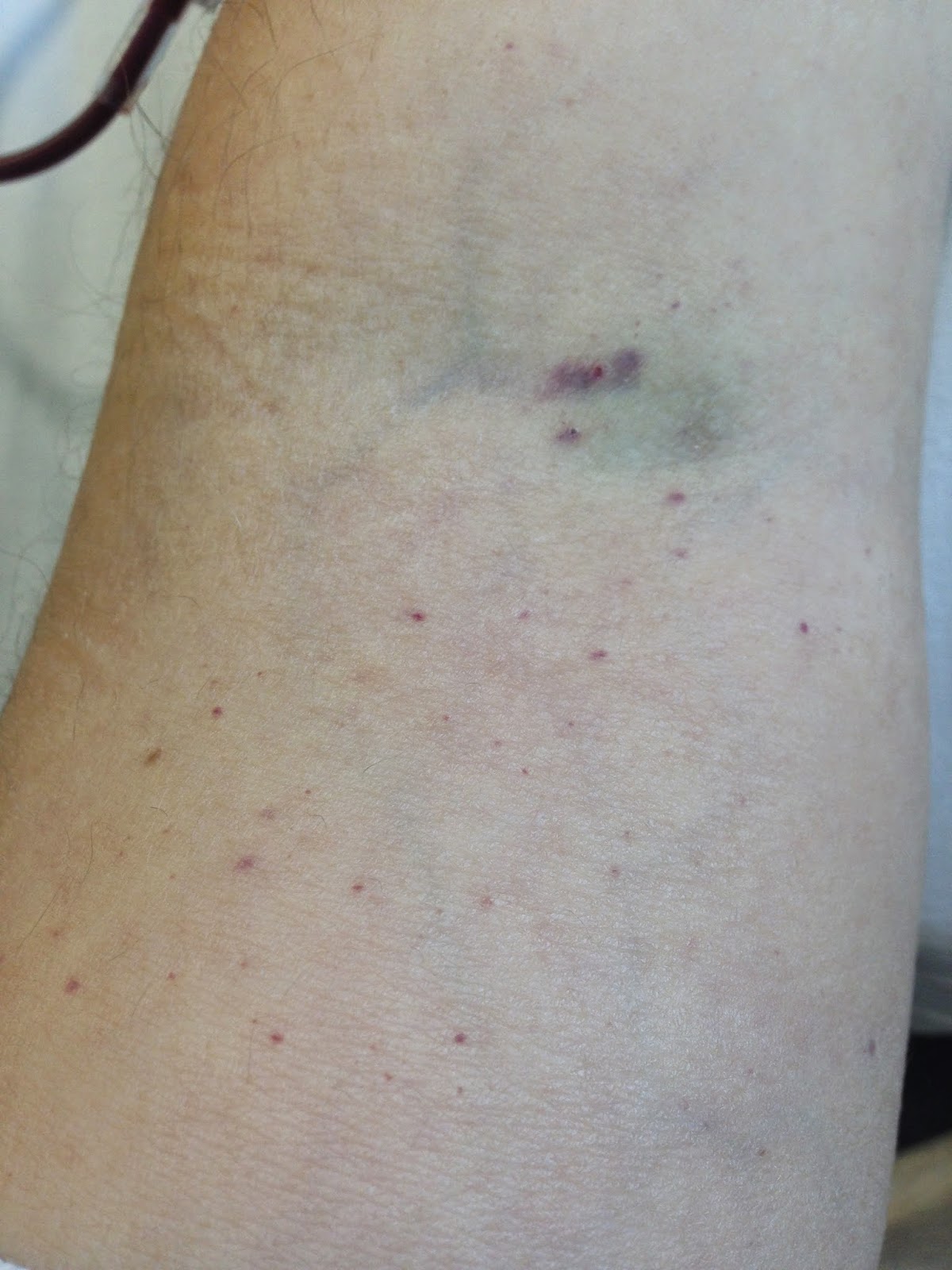Decoding Those Mysterious Red Spots Under Your Skin
Have you ever noticed small, red spots appearing under the skin on your arms? These subcutaneous red marks can range from barely noticeable to prominent and sometimes even itchy or painful. While often harmless, they can sometimes signal an underlying health issue. This article will explore the various causes of these red spots, when you should be concerned, and how to address them.
Discovering red spots under your skin can be alarming, but understanding the potential reasons behind them can alleviate some anxiety. These spots, medically termed petechiae, purpura, or cherry angiomas depending on their size and characteristics, can result from a variety of factors. Everything from minor injuries and allergies to more complex conditions could be the culprit. So, let's dive deeper into what could be causing these reddish discolorations.
Understanding the history and context of skin changes is crucial. Our skin, the largest organ, acts as a protective barrier and a window into our internal health. Changes in skin appearance, like the emergence of red spots under the skin on your arms, can be a historical record of various internal and external influences. From minor pressure changes causing broken capillaries to autoimmune responses, these spots can tell a story. Identifying the origin of these spots, whether due to a recent insect bite or a long-term condition, is the first step in addressing them.
The importance of recognizing and understanding these red spots lies in their potential to indicate underlying health conditions. While often benign, persistent or changing red spots warrant attention. They could be a sign of a blood clotting disorder, an allergic reaction, or even an infection. Recognizing these possibilities emphasizes the importance of consulting a medical professional for an accurate diagnosis and appropriate management.
One of the main issues related to red spots under the skin on the arms is misdiagnosis. Many people might dismiss them as simple irritation or bug bites, delaying necessary medical attention if a more serious condition is present. Therefore, accurately identifying the type of red spot is crucial. For instance, petechiae are tiny, flat, red spots caused by bleeding into the skin. Purpura, on the other hand, are larger, flat, red or purple discolorations. Cherry angiomas are bright red, raised bumps, often appearing in adulthood.
If these spots are accompanied by other symptoms like itching, pain, swelling, or fever, seek medical advice immediately. It's always better to be safe than sorry, and a dermatologist or your primary care physician can properly diagnose and treat the underlying cause.
Because some conditions causing red spots can be serious, there are no direct "benefits" to having them. Instead, focusing on proper diagnosis and treatment is paramount.
Advantages and Disadvantages of Having Red Spots Examined
| Advantages | Disadvantages |
|---|---|
| Early diagnosis of potential underlying conditions | Potential anxiety while waiting for diagnosis |
| Peace of mind if spots are benign | Cost of medical consultation |
Frequently Asked Questions:
1. Are red spots under my skin always a cause for concern? Not always, but persistent or changing spots should be checked by a doctor.
2. Can allergies cause these spots? Yes, allergic reactions can manifest as red spots under the skin.
3. What should I do if the spots are itchy? Avoid scratching and consult a doctor.
4. Could these spots be related to a medication I'm taking? Some medications can cause skin reactions, including red spots. Consult your doctor or pharmacist.
5. Can stress cause red spots under the skin? While stress itself may not directly cause red spots, it can exacerbate existing skin conditions.
6. How are red spots under the skin diagnosed? A doctor will typically perform a physical examination and may order blood tests or a skin biopsy.
7. Are there home remedies for red spots? While some home remedies like cool compresses may provide temporary relief, it's essential to consult a doctor for proper diagnosis and treatment.
8. Can red spots be a sign of skin cancer? While some skin cancers can appear as red spots, this is less common. Any changing or unusual skin growths should be examined by a dermatologist.
Tips and Tricks
Keep a journal of when the spots appear, any associated symptoms, and any potential triggers. This information can be helpful for your doctor.
In conclusion, the appearance of red spots under the skin on your arms can be triggered by various factors, from harmless capillary breakage to more serious medical conditions. Understanding the different types of red spots, their potential causes, and when to seek medical attention is paramount. While often benign, persistent, changing, or symptomatic red spots should be evaluated by a healthcare professional. Early diagnosis and appropriate management are key to addressing any underlying issues and ensuring skin health. Don’t hesitate to contact your doctor or dermatologist if you're concerned about any changes in your skin. Your health is worth the peace of mind.
Decoding the atmosphere a deep dive into weather vocabulary
Marion mugshots ocala arrests understanding public records and privacy
The ultimate guide to shutting down insults what is the best comeback















